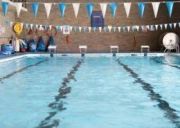Our School In Brief
In September 2014, Holy Trinity became a Free School. A Free School in England is an independent, state-funded school which is free to attend but which is not controlled by the Local Authority. The school is governed by the Holy Trinity Academy Trust, a non-profit charitable trust that signed a funding agreement with the Secretary of State.
The school owes its origins to the Trinitarian order of Nuns, which dates from the 12th century and was founded by two French priests, John de Matha and Felix de Valois. Established in 1903, Holy Trinity is a school that has evolved with the times without compromising on its core values and ethos, which are equally as strong today. The school has a wide range of facilities, which help to support a broad and balanced curriculum, shared by both primary and secondary pupils. These include a concert hall and gym, two libraries, an information technology suite, swimming pool, science laboratories and a home economics room, as well as outdoor sports courts. Being housed on one site ensures continuity of education and eases transition from primary to secondary education and transition through to Sixth Form. To have the opportunity to undertake a 14 year journey ensures continuity of learning as well as opportunities for personal growth and development. The value of the curriculum lies in an ability to create independent life - long learners and whilst we acknowledge the importance of examinations, we place equal importance on providing a holistic approach to education, helping our young people to become the best versions of themselves, creating a population that will participate in and contribute to society.
Holy Trinity is unique because it has the following features:
- An all-age co-educational school, on the same site. Children who enter at age 4 will be able to continue, if they and their parents wish, until their school education ends at age 18.
- Separate but cohesive primary, secondary and sixth form sections.
- A small school, with a family atmosphere, despite an increase in pupil numbers, year groups are small (classes of 25).
- Building on the school’s current success in national tests and public examinations, a strong emphasis on high expectations for all pupils and on academic rigour. All pupils will study at least one foreign language from age 7 onwards and follow a course leading to the academically demanding English Baccalaureate at age 16.
- Subject specialism in PE, Music and Languages in the Primary section.
- Cross phase teaching to allow for effective transition between years 6 and 7.
- A strong emphasis on pastoral care and on every pupil being known and individually looked after and cared for.
- Slightly longer school days KS1: 8.30am - 3.30pm (7 Hours) / KS2-5: 8.30am - 3.50pm (7 Hours, 20 mins), with an extra holiday week at Christmas and summer.
- An emphasis on personal development supported by a strong House system that helps to break down year group boundaries.




